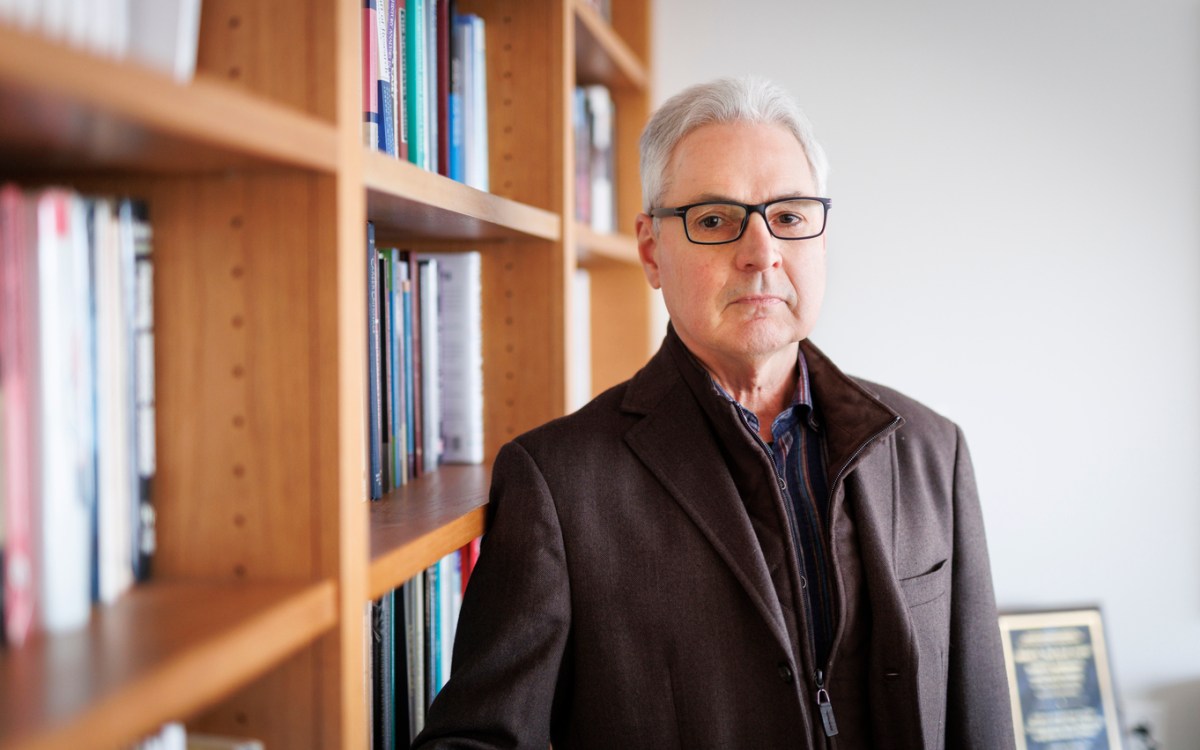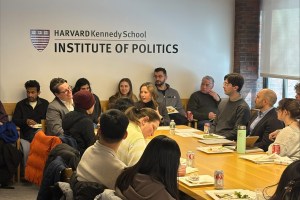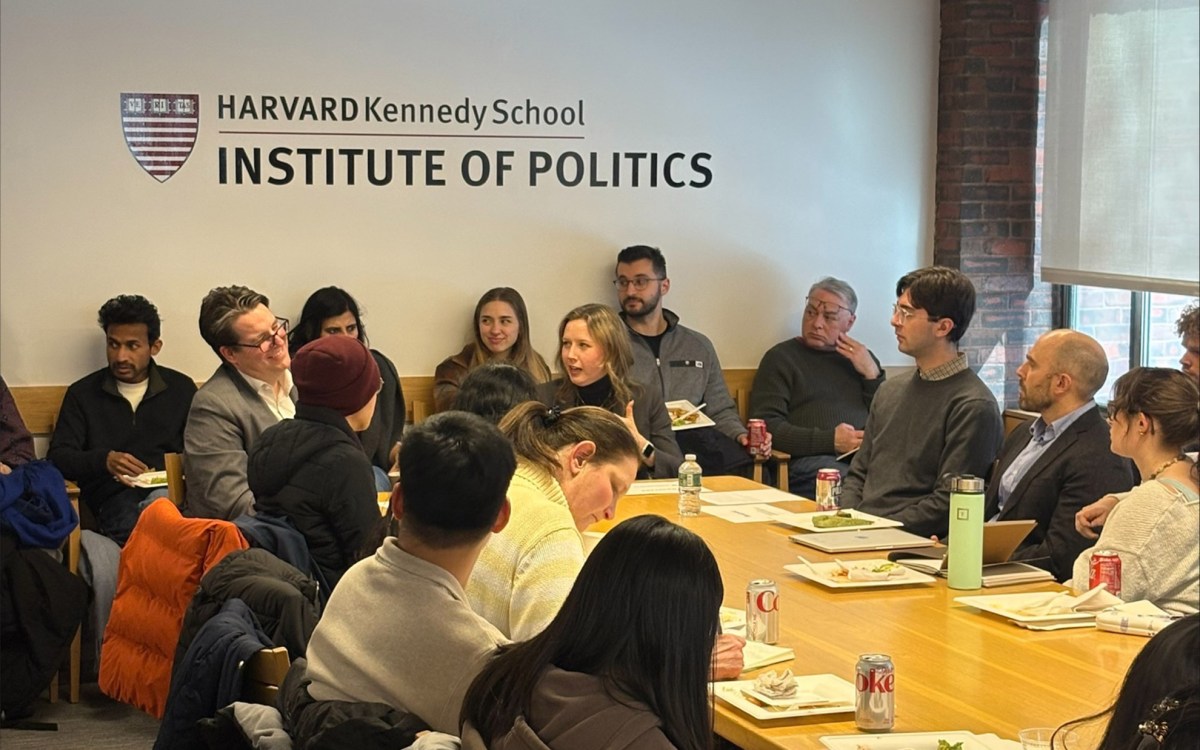Kim Dae-jung has ‘sunny’ advice for U.S.
Former South Korean President Kim Dae-jung told an audience at Harvard Kennedy School’s John F. Kennedy Jr. Forum Tuesday night (April 22) that the United States should allow the sun to shine on its relations with the world’s fastest growing economic power. Referencing his own efforts to thaw chilly relations between North and South Korea in the late 1990s, Kim said that “if the U.S. implements a sort of ‘Sunshine Policy’ toward China, we will be able to have greater hopes about democratization of China.”
There is much evidence, Kim said, to support the assertion that China may head down a democratic path. The most persuasive evidence, he said, is a growing middle class that now includes 50 million people.
“If the population of China’s middle class and intellectuals keeps growing and reaches 200 to 300 million, their pressure on bringing about democracy will be so huge that the authorities will find it hard to bring it under control. Enormous change will come,” he stated. “Given the speed of China’s economic development, we can suppose that the day is not so far away.”
Kim argued that China’s political, social, and cultural evolution will have profound effects on the rest of the world in the decades — and centuries — ahead.
“Depending on which road China will take,” he said, “the fate of humanity will be greatly impacted.”
The former president reflected on the recent setbacks in North-South Korean relations, accusing President Bush of adopting a policy of “ABC: Anything But Clinton,” rolling back the progress that had been made, and further isolating the idiosyncratic North Korean regime. And he urged Bush’s successor to again reach out to the North in order to further the chances for peace and reconciliation on the Korean peninsula.
“Although Western communities couldn’t succeed in taking off the coat of communism through the north wind of the Cold War, they could do so with warm sunshine,” Kim said.
The forum was moderated by Jim Leach, director of the Institute of Politics.




